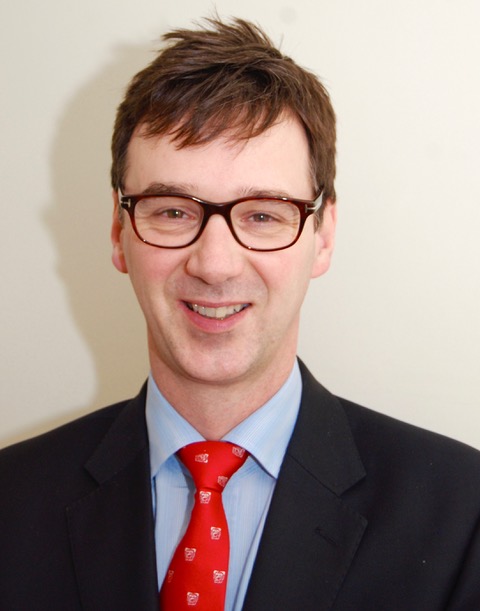We chatted to CDS Associate Gynaecologist Mr Ian Currie about his professional journey so far.
- How and why did you get into this field of work?
“As a junior doctor I was wondering, like most junior doctors. which career path I should take. I knew I wanted to do some form of surgery, and started in cardiothoracic medicine and then ear, nose and throat. I was studying for my surgical exams and had to think long and hard about my future. In the end, it all stemmed back to good teachers at university – I had an inspiring professor in Obstetrics and Gynaecology, which in turn made me enjoy that subject and started to look more closely at it. I enjoy the fact the specialty has many different facets, such as surgery, medicine and diagnostic imaging such as ultrasound.
When I started working in obs and gynae, it was really exciting to be on the labour ward and I particularly enjoyed the distinct beginning, middle and end of the whole process of pregnancy. There’s a real-life buzz and drama, which is particularly appealing when you’re younger, but I’ve found that thrill hasn’t diminished as I have got older and I still find it very exciting.
2. How did you meet and start working with Bill/CDS?
We met when Bill and CDS were going to move into the same premises as me! We also had a contact in common, a sonographer called Nikki Stillwell with whom we both still work. We started referring patients to each other and the rest is history! We’ve built a superb working relationship for the benefit of our patients.
CDS are striving to close the gap between a patient just receiving a straight-forward ultrasound image/picture, by bringing it to life for the patient and linking it to their symptoms. You can only achieve that with excellent dialogue between the person doing the scanning and the patient, which Bill excels at. Me being part of the CDS team means our patient can get a clinical opinion very quickly,
3. What is the biggest misconception about what you do?
That it’s just babies! Everyone assumes I just deliver babies, whereas obs & gynae you’re looking after women throughout their whole life – from a teenager to old age. The specialty really is a continuation, with all the different diseases, cycles and life events within a woman’s reproductive history. From pre-conception, through pregnancy and birth, to menopause, HRT, prolapse and incontinence. I cover it all, it’s definitely not just babies!
3. What are you most proud of?
On a personal level, I didn’t have a very privileged upbringing in regards to my education, and I was in fact the first person to go to university from my school, and then the first to do a medical degree. Coming from where I am, that is an immense achievement.
I’m also incredibly proud of my kids and what they have turned into.
On a professional level, becoming Vice President of the College of Obstetrics and Gyneocology is also a high point – I am very proud to lead the specialty both home and abroad. I have been fortunate enough to travel and lecture in some amazing places that you wouldn’t normally visit, such as Pakistan, Iran, Somalia, Iraq
In every day life, I am very proud when I receive positive feedback from patients – it makes you feel good that the time you spent with someone was appreciated. I qualified in 1987, but even now I still enjoy getting a good review – I am only human!
4. What would you change about current NHS fertility treatment?
The biggest issue is the postcode lottery – the huge disparity of treatment available to women depending solely on where they live. That has been overcome a little bit by the NHS providing one cycle of IVF but it is still very unpredictable.
Many of the patients that Bill and I see have been investigated in a very fragmented way, and is quite often patient-driven. Through frustration , patients take control of the direction of their own healthcare quite often seeking support from Clinical Diagnostics and Bill’s team.
While IVF has been a massive breakthrough in terms of providing women with children over many decades, there are still many options available to those failing to conceive that fall short of IVF. This is what a team such as ours can support with.
5. What would your message be to someone who is thinking of coming to see you?
That you’re not just coming to see me, but a team. Yes I am the gynaecologist, but I don’t function without an excellent support team around me, and a referral network of trusted clinicians. This is why CDS and I work so well together, as we support our patients as a team.”

